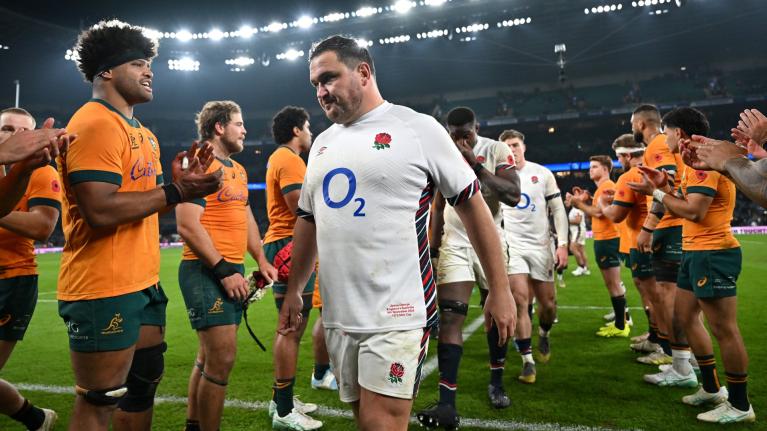Steve Borthwick explains where blame lies for latest England defeat

Steve Borthwick has blamed the high number of turnovers in possession for Saturday’s latest England loss. The head coach was left looking on with bewilderment as Australia struck with an 83rd minute converted try to clinch a 37-42 win in a crazy exhibition of Test match rugby that swung over and back in a dramatic finale.
Initially ahead 15-3 following two early Chandler Cunningham-South tries, England reached the interval 18-20 behind and that gap widened to 18-28 before two tries from sub Ollie Sleightholme put the Allianz Stadium hosts back in front by 30-28 with 12 minutes remaining.
There was still further drama to come as Australia jumped ahead again before a converted 78th minute Maro Itoje try had England on the cusp of a 37-35 win. However, that victory was incredibly snatched away by Max Jorgensen’s late, late try after he escaped down the touchline.
It left England beaten six times in their last eight matches despite the noticeable 2024 improvement in their attack. They scored five tries in total against the Wallabies but the concession of 18 turnovers to 11, according to match centre stats on the Autumn Nations Series website site, allowed the visitors to successfully battle their way back.
Australia ultimately also finished with five tries, getting the new era of Joe El-Abd as the English defence coach in place of Felix Jones off to the inauspicious start of eight tries conceded in two November losses.
“Everyone associated with the team is gutted,” said Borthwick, trying to make sense of a second Autumn Nations Series defeat seven days after his team were agonisingly beaten 22-24 by New Zealand.
“It’s a game we should have won, we were in a position to win. Multiple times in the game we put ourselves in position to go and win the game and we didn’t.
"Ultimately when you turn over that much ball and have a game that unstructured against a team with that much pace, you are giving them opportunities and we gave them far too many opportunities.
“If you look at what you have seen in the last couple of weeks, we came within a width of a post of beating New Zealand and the team played very well and also accepting not being good enough because we wanted to win, we were in a position to win.
“And today you see again the team developing the attacking side of the ball, the team having the confidence to move the ball. You saw that today and you have seen that with the team.
“One of the big challenges of the England team over a long period of time has been the weight of the shirt on the players. It is something we have worked to develop and move on from with the team but clearly there is consequences. If you turn the ball over that many times, you don’t give your defence much of a chance. So we need to improve on that.
“You saw the players with the ball in hand play with an endeavour and courage. This is a team that has got points, there are guys that want to move the ball. The challenge is to understand the right balance with that. That if you give the opposition that many chances, they are going to take them – and they took plenty today.”
Borthwick insisted he will keep faith with the current attacking approach even though it left them vulnerable. “What we will be real conscious of with the players is that I will back them to execute their skills and I want to make sure the players feel they have the confidence to go out and attack the way we want to attack.
“Now clearly there were some things there that we were at times too loose. I thought the first 20 minutes was exactly how we wanted to start the game. At that point it was 15-3, exactly the way we wanted to start and then that changed, it wasn’t the way we wanted to play for the next 15 to 20 minutes to half time.
“Executing your skills, executing your plans when you have got people running the lines in the way we want to play, it becomes much clear. When you drift away from the game plan it generally leads to more errors.”
Latest Comments
Credible stuff.
Any reason the English Prem is not in the table Dmitri? Just sayin….😉
Go to commentsHe’s definitely got a roy and hg vibe to his comments.
Go to comments